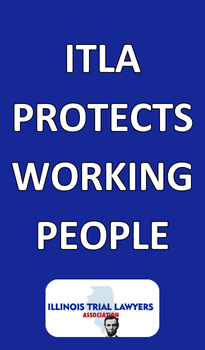* From a letter to the Illinois Association of Health Care Facilities from 78 Illinois state legislators…
The COVID-19 public health crisis has our Country living through unprecedented times. Our State is under a stay- at-home order resulting in school closures, drastically altered restaurant operations, and banned gatherings of ten people or more. In the midst of this stay-at-home order, some services cannot stop and some workers must still report to the frontlines.
Nursing home workers are among those our state is depending on to show up and care for our loved ones. As elected officials – as Illinoisans – we owe them and their families a great deal of gratitude and deep appreciation. We are concerned to hear that there is not enough PPE being provided to workers in ALL job classifications in nursing homes. If we are going to flatten the curve of COVID-19, we have to provide the appropriate PPE, for workers and consumers to feel safe. Workers should be informed and trained on how to deal with COVID-19 in all facilities for their safety as well as the residents. Our collective goal is to save as many lives as possible and that can only be done when employers protect their employees.
In addition, these workers are among the lowest paid in the state. Last year the Illinois General Assembly took action to increase the reimbursement rates for nursing homes by $240 million. We supported this measure, in part because it was assured by the nursing home industry that a significant portion of this money would be spent on direct care staff – the very staff on the frontlines fighting back against COVID-19.
Unfortunately, we’ve learned that this hasn’t been the case as workers from over 100 nursing facilities are bargaining to finalize a contract before their current agreement expires at the end of this month. As some of the lawmakers who authorized this funding, we remain hopeful that the nursing home industry intends to offer their workers a contract that truly reflects the large increase in dollars that the industry was given. This also comes in light of news that the nursing home industry is asking for millions more in immediate state funding for purposes which are unclear. We are alarmed to learn of this request when the money previously authorized hasn’t yet been used for its intended purpose.
We urge the Illinois Association of Health Care Facilities to thoroughly consider their actions in this extremely trying time. Workers deserve respect and dignity. This starts with adequate personal protective equipment, a level of paid sick time that you would expect for yourself, and wages that don’t keep employees living in poverty.
If the COVID-19 public health pandemic has accomplished one thing it has uncovered the very real problem that frontline healthcare workers haven’t received the support, respect, and compensation they deserve to support themselves and their families. Please consider contributing to the solution. Now is the time to save lives – not pennies.
* Meanwhile, SEIU Healthcare has two new radio ads. First up, “She’s My Mom”…
Script…
My daughter cries every day when I go to work at a nursing home, not knowing if I’ll be safe.
I hear the cries of patients — crying because they’re getting sick, care workers are getting sick, and because nursing home owners refuse to help. Nursing-home workers — Black, brown, and white women — deserve a safe workplace and hazard pay for our work on the frontlines — we deserve to be able to protect our families and communities from getting sick. Because I’m not just a nursing-home worker —
[Daughter’s voice:] She’s my mom, too.
* “Profits Above Safety”…
Script…
I’m a Nursing home worker on the frontlines of this crisis. Other Black women, like me, are risking our lives everyday, working in unsafe workplaces, and not receiving hazard pay for our essential work. Across Illinois, residents in nursing homes are dying…. workers like me are dying.
We need nursing home owners to put our safety and our patients’ safety above their profits.
We are urging our lawmakers to get involved on behalf of our patients’ lives — and ours too.
Thoughts?















